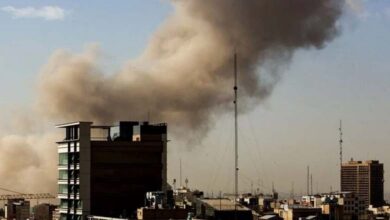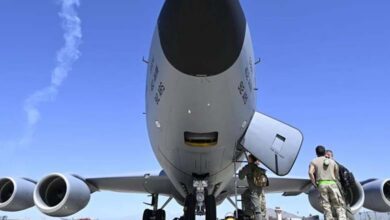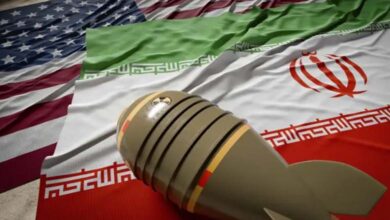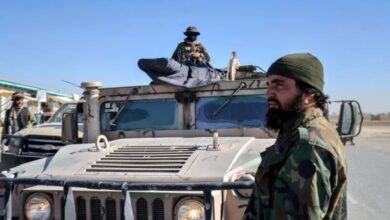Between Islamist Expansion and Military Rebellion… ECOWAS Faces Its Most Serious Crisis Since Its Founding
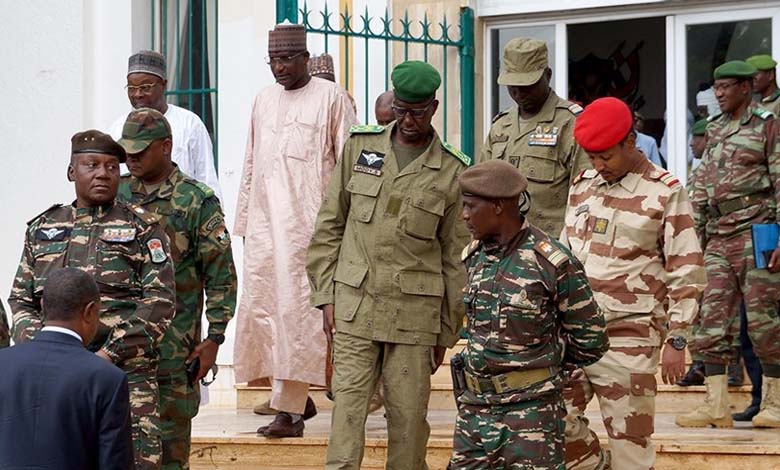
The President of the Economic Community of West African States (ECOWAS) Commission, Omar Touray, stated on Wednesday that the regional bloc is facing increasing threats from terrorism, climate change, military coups, and poverty. His remarks came during a summit of member states’ leaders in Nigeria, marking the 50th anniversary of the organization’s founding.
-
ECOWAS links easing sanctions on Niger to roadmap
-
“Aggressive” intentions cancel Military Agreement: Niger closes its southern door to ECOWAS
Violence has escalated this year due to extremist Islamist groups in Nigeria and the Sahel region — including Burkina Faso, Mali, and Niger — countries that recently withdrew from ECOWAS in protest of sanctions imposed following military coups.
According to Touray, quoted by Monte Carlo Doualiya International, “We are facing the greatest challenges today… terrorism, climate change, unconstitutional changes of government, poverty, and economic inequality,” expressing confidence that these challenges can be overcome.
-
“ECOWAS” and Niger… All options are open and force is ready
-
Arming Dynamics of Extremist Groups in the African Sahel: What Is the Source of Their Arsenal?
Established on May 28, 1975, ECOWAS was created to promote economic integration, security cooperation, human rights, and democratic governance among its member states.
However, fifty years later, the ruling military juntas in founding members Burkina Faso, Mali, and Niger decided to withdraw from the bloc, claiming that it no longer served their national interests.
These countries have formed their own alliance, the Alliance of Sahel States, severing military and diplomatic ties with Western powers while seeking closer cooperation with Russia.
-
French Presence in Africa Shrinks as Senegal and Chad End Defense Cooperation
-
The Emergence of a New Jihadist Group Exacerbates Nigeria’s Security Woes
Touray stated that ECOWAS will continue trying to engage with the three countries.
In 2024, the Sahel was ranked for the second consecutive year as the global epicenter of terrorism, accounting for more than half of all deaths from terrorist attacks worldwide, according to the Global Terrorism Index published in March.
General Yakubu Gowon, ECOWAS co-founder and former Nigerian military leader, expressed confidence that the trio may eventually return, noting: “The sister countries that chose to leave the bloc may reconsider their decision over time, as historical and cultural ties and a shared destiny remain intact.”
-
Terrorism and Gold… Burkina Faso Traces Its Troubles Back to French Legacy
-
After Terrorism, Rebellion “Blocks” Niger’s Arteries
He added, as cited by Monte Carlo Doualiya, “I am confident that with goodwill and sincere commitment, they will find reason to return to the ECOWAS family — stronger, more united, and more determined to realize our common vision for West Africa.”
Nigerian Foreign Minister Yusuf Tuggar also voiced his belief that the three countries in the Sahel alliance “will return in the future.”
Over the past decade, coups and attempts at political destabilization — fueled by growing public distrust in political elites — have shaken nearly half of ECOWAS’s founding members, undermining democracy and weakening relations between neighboring countries.
-
Has Terrorism Penetrated Africa to Plunder Its Wealth?
-
After a Decade, Why Did the United States Decide to Withdraw Its Troops from Niger?
-
Title: Provocative Step Allows Russian Soldiers to Enter US Base in Niger





